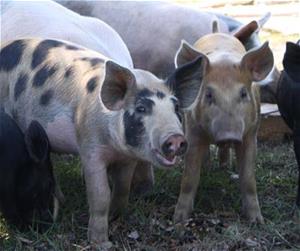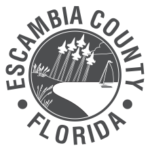Disaster preparedness is important for all animals, but it is particularly
important for livestock and equine because of the animals’ size and their shelter and transportation needs. Disasters can happen anywhere and can take many different forms, all of which may necessitate evacuation. It is imperative that you are prepared to protect your livestock and/or equine, whether by evacuating or by sheltering in place.
The leading causes of death of large animals in hurricanes and similar events are collapsed barns, dehydration, electrocution and accidents resulting from fencing failure. In a slowly evolving disaster, such as a hurricane, leave no later than 72 hours before anticipated landfall, especially if you will be hauling a high-profile trailer such as a horse trailer.

Take your disaster supplies with you or make sure they will be available at your evacuation site. You should have or be able to obtain feed, water, veterinary supplies, handling equipment, tools and generators.
Inform friends and neighbors of your evacuation plans. Post detailed instructions in several places to ensure they are accessible to emergency workers in case you are not able to evacuate the large animals yourself.
Important documents for your livestock and equine should be taken with you in a waterproof envelope, as well as color photographs for identification, emergency telephone numbers and veterinary documents.
James C. Robinson Escambia County Equestrian Center, 7750 Mobile Highway in Pensacola, may accept equine animals during an evacuation as a result of hurricanes, based on the severity of the approaching storm. All care of the animals will be at the responsibility of the animal owners. No feeding or care services will be provided by the county or pet shelter managers.
Sheltering in Place
If evacuation is not possible, a decision must be made about whether to confine large animals to a shelter on your farm or leave them out in pastures. Owners may believe that their animals are safer inside barns, but in many circumstances, confinement takes away the animals’ ability to protect themselves. This decision should be based on the type of disaster and the type of sheltering structure.
If your pasture area meets the following criteria, your large animals may be safer in the pasture than being evacuated:
No barbed wire fencing (woven wire fencing is best)
Larger than one acre in size. If less than an acre, your livestock may not be able to avoid blowing debris
No exotic (non-native) trees, which uproot easily
No overhead power lines or poles
No debris or sources of blowing debris
